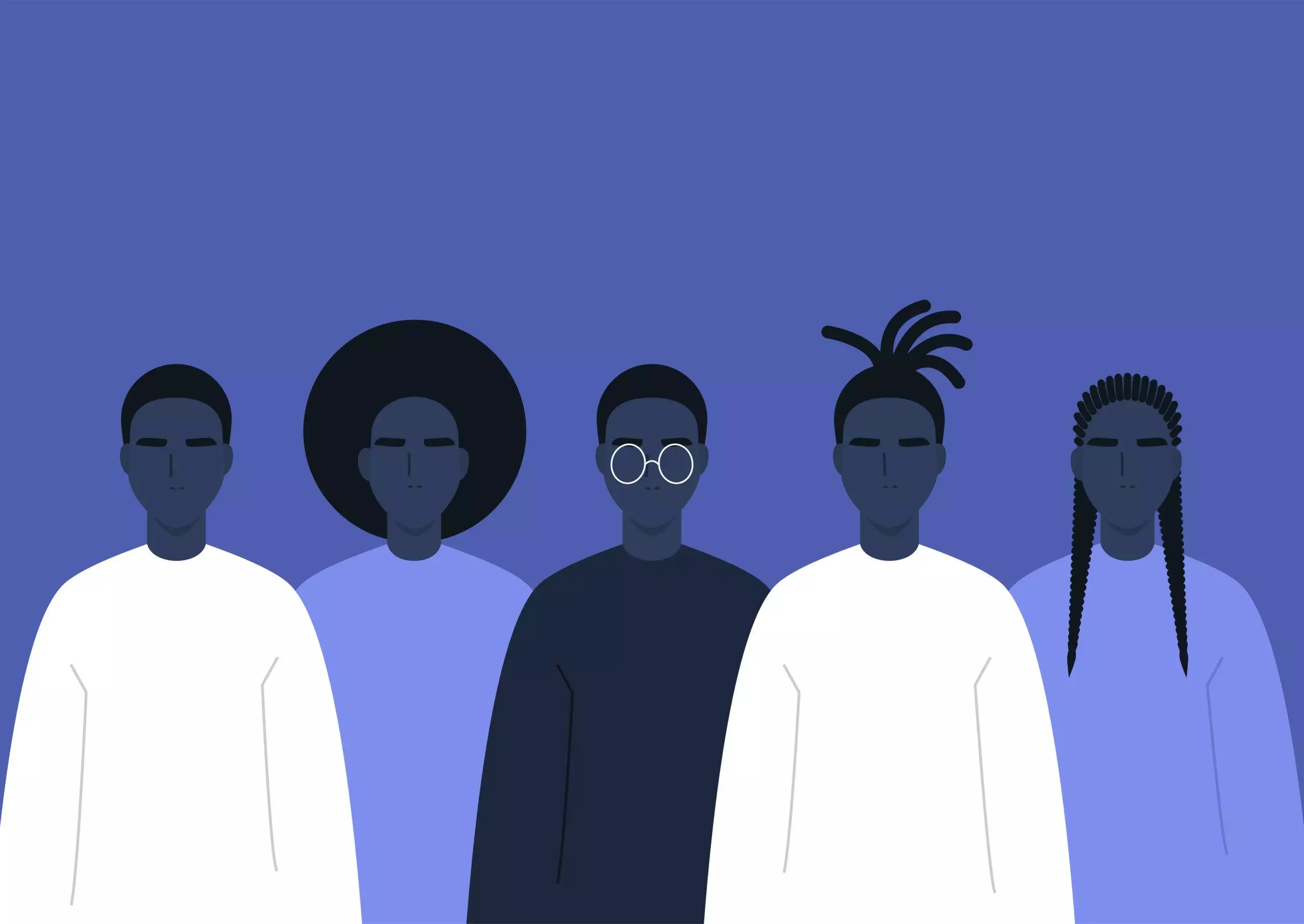Post-traumatic stress disorder (PTSD) affects millions of people from all backgrounds, including age, socioeconomic status, religion and race. However, differences in these social determinants affect everyday aspects of life and contribute to disparities in mental health within and across populations. So, are some racial groups more likely to develop PTSD?
Where Does PTSD Come From?
PTSD can develop as a result of experiencing one or more traumatic events. Exposure to trauma may have happened once or the exposure may have involved an ongoing series of traumatic events, such as domestic violence or childhood abuse. Trauma may include:
- Being physically assaulted
- Being sexually assaulted
- Witnessing physical or sexual assault
- Domestic violence
- Acts participated in or witnessed during military service or war
- Childhood abuse and neglect
- Long-term illness
- An accident
- Natural disasters, including tornadoes, hurricanes, and floods
PTSD in the Black Community vs. Others
Research examining rates of PTSD in racial and ethnic minority populations has suggested that African Americans and Latino adults may develop PTSD at higher rates than White adults (Galea et al., 2004).
Research has suggested that BIPOC in the United States may experience more severe PTSD symptoms (Ortega & Rosenheck, 2000; Roberts et al., 2011). Several studies have helped explain these racial differences in PTSD prevalence and severity. BIPOC may experiences socioeconomic factors that may limit their resources to cope with traumatic stressors, increased exposure to violence, stressors associated with immigration, cultural differences in expressing emotions, overrepresentation in poorer, disadvantaged, and higher crime communities, pervasive marginalization, higher rates of victim blaming following an assault, as well as increased rates of incarceration, homelessness, intimate partner violence, and sex trafficking.
Another type of trauma, racial trauma, or race-based traumatic stress (RBTS), refers to the mental and emotional injury caused by encounters with racial bias and ethnic discrimination, racism, and hate crimes. Any individual that has experienced an emotionally painful, sudden, and uncontrollable racist encounter is at risk of suffering from a race-based traumatic stress injury. In the U.S., Black, Indigenous People of Color (BIPOC) are most vulnerable.
Other Differences Related to PTSD in the Black Community
A report published by the Cambridge University Press revealed racial and ethnic differences in PTSD prevalence. Lifetime prevalence of this mental illness was highest among the black community:
- Black 8.7%
- White 7.4%
- Hispanic 7.0%
- Asians 4.0%
This report also found that the risk of developing PTSD after exposure to trauma was highest among Black people. Black and other minorities seek treatment for PTSD in smaller numbers than white people. On average, less than half of the members of the black community seek professional help for their PTSD.
Symptoms of PTSD
A person suffering from PTSD may experience disturbed sleep, avoidance, altered mood, and recurrent, intrusive, distressing memories of the traumatic event(s). Symptoms or PTSD may include:
- Intrusive Traumatic Memory Recall: People with PTSD often have memories of a traumatic event. The recall of these may be random, or they may come up with certain cue words or “triggers.” Triggers are usually related to the subject or content of the trauma. These memories may be intense enough to make a person believe they are reliving the event—these are called “flashbacks.”
- Disturbed Dreams and Insomnia: Distressing dreams also may result from trauma. These may cause trouble sleeping or trouble concentrating.
- Emotional Disturbance: Some people with PTSD may exhibit anger or irritability, may be easily startled or frightened or may feel guilt or shame. A person with PTSD may also feel emotionally numb, avoidant or depressed. Often, people with PTSD avoid places or people who remind them of the traumatic event(s).
- Specification: The DSM-V outlines two specific types of PTSD. The first is dissociative specification. This occurs when a person believes that they, or everything around them, is not real. The other is delayed specification. This occurs when the full diagnostic criteria of the disorder are not fulfilled until at least six months after their trauma.
- Isolation: People with PTSD often feel isolated. They may separate themselves from loved ones and experience decreased interest in life or activities they used to enjoy, which can leave them feeling depressed.
Although most people may feel upset or have trouble coping after a traumatic stressor, they usually get better with time and self-care. People with PTSD often experience severe and worsening symptoms which interfere with their day to day activities for months or even years after the event.
PTSD can happen to anyone, and is often the result of experiences outside of your control. If you have distressing thoughts or feelings after a traumatic event which are interfering with your daily life, talk to your doctor or a mental health professional.
How PTSD is Treated
When a family member or other loved one struggles with PTSD and does not receive adequate treatment, it can negatively impact those around them. Timely support for PTSD and comorbid depression is important and may help prevent its symptoms from worsening. Getting support from others, may also help prevent unhealthy coping mechanisms such as misuse of alcohol or drugs.
Talk therapy can help those suffering from PTSD reframe how they think about their trauma. In some cases, prescription medication may also help treat PTSD.
Treatment programs that take place inpatient or outpatient often offer a combination of treatment for mental illnesses like PTSD and substance abuse. Seeking treatment for both conditions simultaneously proves more effective than trying to deal with them separately.
PTSD Treatment in Los Angeles
If you or a loved one is struggling with PTSD or substance abuse, Clear Behavioral Health can help. Please contact our expert clinical team to get started.
